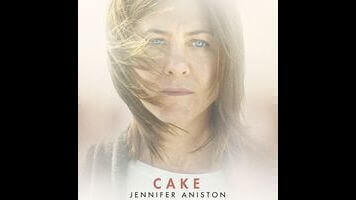The unforgiving microscope of the media can be harsh to women, and that goes double for someone like Jennifer Aniston, whose bread and butter was once being a winsome sitcom star who could trigger trends with just a haircut. She’s tried her hand at serious acting before, in Miguel Arteta’s The Good Girl and Nicole Holofcener’s Friends With Money, but neither movie really moved the needle for her. It’s no wonder that, after years of dreck like Horrible Bosses and We’re The Millers, the actress decided it was time to go big or go home.
Hence Aniston’s starring role (and awards-season stumping) for Cake, a movie that tries so hard to be edgy that it tips over into silliness. If Charlize Theron’s performance in Monster nailed what it takes for a beautiful woman to get an Oscar, Aniston uses a sledgehammer. Her Cake character Claire isn’t merely unlikable; writer Patrick Tobin also saddles her with addiction, suicidal ideation, greasy hair, loveless trysts, scars from a mysterious accident, constant physical pain, and emotional trauma disguised as contempt for everyone she meets.
The only person who can bear to be around Claire is her housekeeper Silvana (Adriana Barraza), who is strangely loyal to Claire despite the verbal abuse, long hours, low pay, and occasional trip to Tijuana for pills. The character of Silvana is so problematic that it deserves its own review and not merely an aside; she’s nothing more than a plot device that literally drives Claire around on demand. Even the women in Claire’s pain-management support group have had enough of her bullshit. The final straw is her morbid fascination with the suicide of fellow group member Nina (Anna Kendrick). Claire’s growing obsession with Nina, whose smug ghost appears to insult Claire and egg her on to kill herself, leads to a fairly creepy friendship with the dead woman’s widower, played by interchangeable hunky Australian Sam Worthington.
The conundrum of playing a character in unbearable, constant pain is that, whether it’s from an injury or an autoimmune disorder, the suffering is mostly invisible. It’s frustratingly hard for people living with chronic pain to make it clear to those around them—even to medical professionals—what it’s like to be in their bodies; it’s even more difficult for an able-bodied actress to portray such a condition with nuance. Aniston rises to this challenge by making the pain visible just by the way she carries her body. She should have stopped there, but instead cranks it up to 11 with a constant stream of obscenities and moans that border on comical. Maybe the humor is intentional, but Cake is never funny enough to be a bleak comedy or subtle enough to be serious.
The results are as cringingly uncomfortable as an episode of The Comeback, the recently revived HBO series starring Aniston’s former Friends co-star Lisa Kudrow. Of course, Kudrow’s performance as washed-up sitcom actress Valerie Cherish is painfully self-aware, a wink and a nod and a smile of gritted teeth at what it’s like to be a woman in Hollywood. Aniston’s Claire, on the other hand, is the sort of role that Cherish would kill for. Director Daniel Barnz, who also made the unbearably earnest Won’t Back Down, never wavers in his more-is-more conviction. Perhaps with a better script and in surer hands, Cake could have been salvaged.

